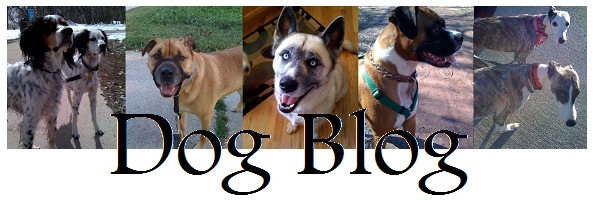
Oftentimes, the dogs who make little to no progress
are the ones where the clients make little to no change in
their behavior. Or they pick and choose what part of the training prescription
they want to follow.
What!?!? That seems rather bold. Could it not be the dog? Or what about the trainer? Hmmm?
Touché! However, it's pretty easy to spot the dog owner I'm referring to. If I were a fitness
trainer this might be the equivalent conversation of a client not getting the
physical results they were hoping for:
“I ate one healthy meal like you suggested, and then I ate
fast food the rest of the week because I was so busy. I don’t know why I’m not
losing weight! Ugh!”
Or
“I haven’t been doing the full workout; I’ve only been doing
push-ups. My arms are looking great but my stomach and legs are still flabby!
What’s wrong with my stomach and legs?”

I know this sounds ridiculously silly, however some clients experience
this disconnect. They’re disappointed with their dog’s lack of progress and
shift blame to their dog. (Or trainer?)
On the flip side, I’ve had clients who are extremely motivated
to change their dog’s behavior. A week after our initial training session we
meet again and even
I’m blown away by
the radical shift in their dog’s conduct. As the weeks go by, not only is there
a rapid shift with the dog, but the
owner
has changed. They’re more calm and confident with their dog.
The owners start relaying my spiel back to me:

“Once you have the right tools and know how to communicate
with your dog, it’s just so easy.”
Or
“I realized I was shouting at him and joining in [his
energy], now it’s just so calm [in our house] and he listens.”
I love having my own philosophy plugged back to me, and
nothing makes me happier than seeing dogs and owners working effortlessly as a
team.

I had a client who was being bitten by his dog. Even though
he understood and agreed that my training methods would probably result in
positive change, he and his wife didn’t want to interact with his dog differently.
I appreciated his honesty, however--what did Einstein say?
Insanity is doing
the same thing over and over again and expecting a different result.
There are many parts to correcting unwanted dog behavior
(see equation below), but in order for lasting effective change, the owner must
change how they interact with their dog.
Dog Training Success = Right diagnosis + Correct Training Rx
+ Timing/Consistency/Energy
*There are rare cases where a dog has a medical condition or
is so aggressive that owners cannot and should not train their own dogs. I am
not referring to these extreme cases here. People who have aggressive dogs
should seek help from a professional trainer and/or talk to their vet.
